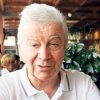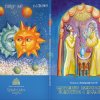Call him the modern-day Albert Schweitzer - on the front lines, fighting tropical diseases at the source for more than a quarter-century. He has been shot at 15 times in seven different wars, yet has never retreated, and once played a key role in war negotiation settlements between Somalia and Ethiopia.
Professor Tomislav Prvulovic MD, MPH, Ph.D., born in 1936 in a town called Jezero in the former Yugoslavia, has expertise in international public health, bio-terrorism and infectious and tropical diseases. But what sets him apart from conventional doctors is the way he has applied that knowledge.
."Albert Schweitzer is the only [western] medical doctor that has spent more time than me in the [world's] poorest countries. I loved it. I loved the people," he says in an interview with The Suit Magazine. "Send me where the problem is; send me where the action is. I don't like the blah, blah, blah."
During the first half of his career Prvulovic got a taste of traditional medicine. "I was teaching in Houston but it was boring. It was Texas guys just thinking of Texas, so I joined Flying Doctors of Africa (AMREF) in 1987," he says. "[At one point] the Minister of Health in Somalia needed a public health assistant, and so I did that. Another time I was asked to speak to the first Congress for AIDS in Tanzania."
"I went to the Congo to handle an Ebola epidemic, and Zaire, the rape capital of the world. I experienced, in vivo, the Ebola virus, the number two bio-weapon in the world," he states. "With the Ebola virus everyone dies, even doctors. I told the police, 'Don't let anyone in or out, including me. Take care not to touch cots or urine.' They just had to follow basic steps."
His experience with bioterrorism viruses is invaluable. "I am now the only professor in the U.S. teaching bioterrorism," he explains. "I published a book for the Pentagon - how to survive in environments with those diseases. It's important right now in Afghanistan. I told them, 'Don't eat cold cuts, you have to see [meat] prepared freshly.'"
Other biological weapons he has faced include small pox and the plague. From 1992 to 1996 he was the World Health Organization's (WHO) Public Health Administrator. "The WHO sent me to handle the [world's] last smallpox epidemic, in Yugoslavia," he says. It was the WHO's first victory in completely eradicating a disease, and Prvulovic received a medal for his efforts. "Small pox is the number one bio-weapon, because it's easy to transmit by droplets. The number three weapon is the Plague. I went to Burma, with 50 million people under the rule of a military regime, when it was hit by the Plague," he recalls.
Prvulovic is also an educator. ""I love when doctors listen to what I have to say. I don't lecture. I walk around during my presentations. I teach tropical diseases at all the medical schools in New Jersey and New York," he says. He is not satisfied, however, with the complacent attitude of many of today's medical professionals. With exasperation in his voice, he says, "Doctors [treating tropical diseases] forgot what to do; they forgot their Hippocratic Oath. I told them, 'you're killing people,'" he said, adding, "I did it the old [fashioned] way. I used a gun to inject 500 people [per] hour with the smallpox vaccine." One of his sons, Misha, died at the age of three. "After my son died, I started working with children," he says. He has been a consulting professor for UNICEF on the Community Health and Financing Project in Myanmar. The accolades have followed Prvulovic's prolific body of work. "[In June of 2009] American University in North Carolina and Cambridge University nominated me for the Nobel Peace Prize. I didn't get it, but it's still in play. If I win the Nobel Prize [of two million dollars], I'll go into the field and give the money to children," he promises.
"I've been given the International Peace Prize, I have been Man of the Year, [I was part of] the Great Minds of the 20th Century, I made the Cambridge University list of the top 100 doctors in the world, and I was given the Silver Medal by the Pope for helping poor orphans [in Asia and Africa]," he recounts. But despite all of those honors, Prvulovic remains humble. "I asked my wife, 'Am I that great?' She said, 'You forget what to buy at the grocery store!'" he laughs.
His family is a central part of his life. "My son Tomi T. Prvulovic, MD, was voted one of the leading physicians in the world by the International Association of Anesthesiologists," he says with pride. Tomi is a board-certified physician in anesthesiology and pain medicine whose practice, the Healthspine and Aneshesia Institute, specializes in minimally invasive spine surgery. He is an expert in the use of hydrosurgery, according to www.healthspinemd. com. He was also featured in a cover story in M.D. News. "When my other son Aleksandar, an internal medicine M.D., went to work at a V.A. hospital in Arkansas, it went from being the worst to being the best," he says. "My sons watched me helping patients, and that's why they are good doctors."
He becomes reflective as the interview comes to a close. "Medicine is not about 'next, next, next.' I talk to patients. I help those who are suffering. Empathy is important. I once worked at Mount Kilimanjaro with a traditional healer. When he walked by everyone saluted him," he recalls with a hint of awe in his voice. "Mother Theresa is my idol. I also met Nelson Mandela and the first Dali Lama." Professor Tomislav Prvulovic is a selfless human being who has devoted his life to protecting others in the harshest of medical environments. His rewards have been heartfelt, not reflected in a bank account. "I live on a pension. I didn't do my work for remuneration."
By Gary Stevens
from The Suit




